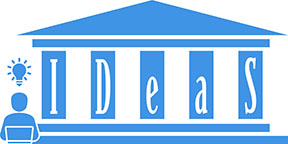76415 Mediated Power and Propaganda
Units: 9.0
Instructors: Oddo
Schedule: TR 1:25-2:45 PH A22
Description:
For most of us, the word "propaganda" triggers a familiar script. We tend to think of totalitarian regimes where the State controls information and prohibits the expression of dissenting views. We also tend to associate propaganda with certain rhetorical techniques - highly emotional words, deceptive representations, and glittering generalities that inhibit rational thought and manipulate public opinion. According to such popular views, propaganda is linked to the dissemination of false information and is antithetical to the norms of democratic society. Our class will challenge these assumptions. First, instead of confining propaganda to authoritarian governments, we will examine how propaganda functions within democratic society. Indeed, we will focus on domestic propaganda in America, especially political propaganda but also propaganda in advertising and public relations. Next, instead of focusing exclusively on deceptive rhetorical techniques, we will ask a more elemental question: What enables propaganda to circulate? Answering this question will force us to consider the routines and values of corporate media as well as the power relations that give some people special access to channels of mass communication. Certainly, we will also examine propaganda messages themselves, attending to manipulative tactics as well as rhetorical strategies used to induce uptake in the mainstream press. We begin our seminar by studying key theories of propaganda, looking at primary texts for various definitions and criticisms of the concept. We will then examine how powerful institutions, especially media organizations, manage the dissemination of propaganda in democracies. Finally, we will consider how to analyze propaganda, generating methodological prerequisites for scholarly study. Ultimately, students will have the opportunity to conduct their own research on propaganda as it relates to their academic and professional goals.
Co-lists: 76-815
